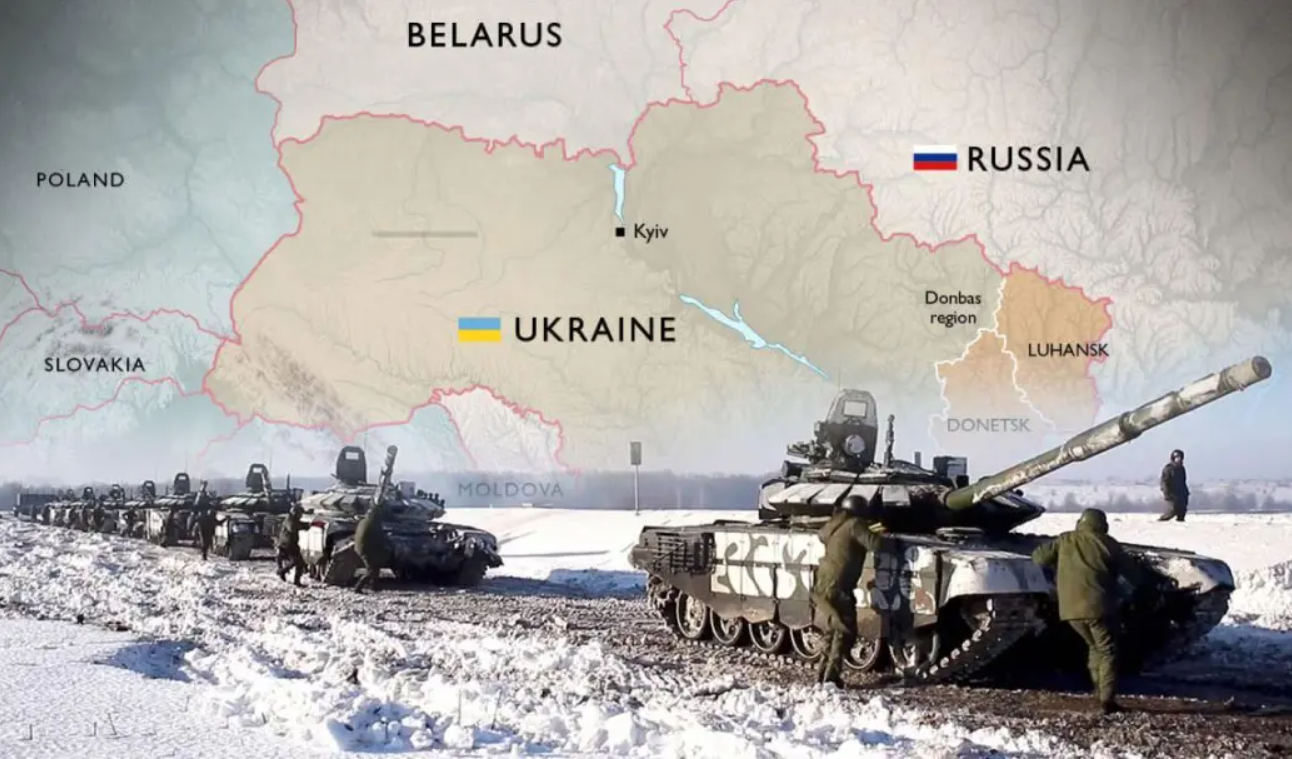
Feb. 24 marks the one-year anniversary of the Russia-Ukraine conflict, and no one can foresee the end of it. Although the conflict is between Russia and Ukraine, the actual participants are far more numerous. Other participants, led by the United States, have interfered in the conflict from the beginning, albeit indirectly.
Over the past year, all participants have done what they could and got what they deserved. Ukraine has suffered heavy casualties — 42,000 of its own troops and 38,700 foreign volunteers — and its population has been sharply reduced as 13.3 million people fled the country and 8.5 million Ukrainians were absorbed by Russia after the annexation of Donetsk, Luhansk, Zaporizhia and Kherson.
In addition, large cities and small towns were bombed and weapons, equipment, bridges and other infrastructure were destroyed. The Ukrainian people have had a hard time. While having suffered immeasurable losses, Ukraine has to carry on the proxy war for the U.S. and the EU and thus has become the biggest loser in the conflict.
Russia has lost any moral ground it might have had and damaged its international image by violating the UN Charter to launch military operations against a sovereign country. Russia’s offensive operations have been checked on different fronts and it has failed to realize its strategic objectives despite the high cost of 100,000 casualties. President Vladimir Putin was forced to mobilize fresh recruits for new military operations.
Russia attacked Ukraine to prevent it from joining NATO, among other things, but it only sped up the NATO memberships Finland and Sweden, leaving its 1,340-kilometer border exposed. Although Russia claims the annexation of Donetsk, Luhansk, Zaporizhia and Kherson through referendum, the sanctions and hostilities imposed by the U.S., the EU and other countries will severely restrict its existence and development. In short, what Russia has lost outweighs what it has gained. So Russia is a big loser, too.
The EU has emptied its reputation by following the U.S. to sanction Russia and support Ukraine with weapons and equipment — howitzers, artillery rounds, infantry fighting vehicles, air defense missiles, armored personnel carriers, tanks and helicopters — suffering real losses in its economy and development. First, the EU offered Ukraine financial support of 1.4 million eurodollars, which has worsened its already strained finances.
Second, the EU has to buy energy, such as petroleum and gas, at a much higher price from the U.S. owing to its economic sanctions on Russia and has severely damaged its economic and social development.
Third, the U.S. Inflation Reduction Act offers high subsidies to electric vehicles made in the U.S. and tremendously weakens the competitiveness of vehicles produced in EU countries.
Fourth, following the U.S. to intervene in the Russia-Ukraine conflict has deepened the EU’s dependence upon the United States and seriously crippled its independence and dominance. The EU has gained nothing from interfering in the Russia-Ukraine conflict; it has only suffered heavy losses.
The U.S. has spared no effort to encourage Ukraine to carry out the proxy war by imposing economic and financial sanctions upon Russia, committing $30 billion in security assistance to Ukraine since the beginning of the Biden administration and convening the Ukraine Defense Contact Group meetings to coordinate Western military aid with the purpose of weakening Russia, controlling Europe and eventually containing China to benefit itself.
The U.S. has almost achieved all of its aims as the Russia-Ukraine conflict continues — having earned enormous political benefits by portraying itself as the incarnation of justice and protector of world order through the UN General Assembly and other international forums; having eliminated a realistic threat by weakening Russia through the Russia-Ukraine conflict; having strengthened its control over the EU and allies through the Ukraine Defense Contact Group; having created opportunities for the U.S. to sell petroleum and gas at much higher prices to EU countries to earn bigger profits; having compelled European enterprises, by enacting the Inflation Reduction Act, to invest in the U.S.; and having updated the U.S. military’s weapons and equipment through the presidential drawdown authority.
Since August 2021 President Joe Biden has employed the presidential drawdown authority 28 times to pull weapons and equipment from U.S. stocks to be delivered to Ukraine — including anti-aircraft systems, anti-armor systems, 155mm howitzers, high mobility artillery rocket systems, national advanced surface-to-air missile systems, GRAD rockets, Bradley infantry fighting vehicles, Stryker armored personnel carriers and Abrams tanks.
Then the Department of Defense (DOD) employs the budget appropriated by Congress for the presidential drawdown authority to purchase more sophisticated weapons and equipment to replace the drawdown stocks. As of Jan. 31 the U.S. Congress had appropriated $12.5 billion in fiscal year 2022 to replace these stocks and $13.4 billion for fiscal 2023. The DOD has to-date identified $9 billion in replacements, of which $4.5 billion have been awarded on contract. Thus, the U.S. has not only provided military assistance to Ukraine but also enabled its own military-industrial complex to earn big money and its own armed forces to speed up modernization.
The above facts show that the U.S. is the biggest winner of the Russia-Ukraine conflict, and the other participants are all losers. However, none of the participants are willing to conclude the conflict. Russia is preparing new offensives to realize its objectives. Ukraine is launching counterattacks to regain lost territory. The U.S. and EU are sending offensive weapons such as armored vehicles, tanks and tactical missiles to Ukraine to prolong the conflict.
When will the Russia-Ukraine conflict come to an end? Nobody can predict it precisely. But one thing is certain: The longer it lasts, the more benefits the U.S. will gain and the more the other participants will lose.
